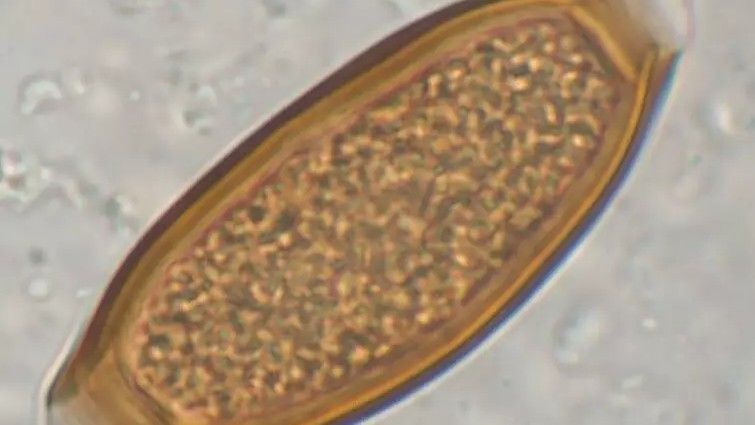New Species of Human Parasite Discovered in West Africa

A team of scientists has discovered a new species of human parasite, Trichuris incognita, in Côte d'Ivoire, West Africa, which appears to be resistant to common antiparasitic treatments such as ivermectin.
The newly identified species is closely related to the whipworm Trichuris trichiura and has been found only in West Africa. According to researchers, the parasite's eggs can contaminate soil and water sources, posing a risk to individuals who come into contact with them through contaminated food or water.
"While the infection tends not to be deadly, heavy infections can cause serious disease particularly in young children," said John Gilleard, a professor of parasitology at the University of Calgary. "We suspect that Trichuris incognita may be more similar to a parasite that infects pigs than those normally found in humans."
Researchers conducted a study into parasitic drug resistance in West Africa and discovered that the parasite's genetic analysis revealed it was a different species from what was found at other study sites. The team, led by Abhinaya Venkatesan, used molecular tests to identify the new species and confirmed its resistance to ivermectin.
The discovery has been published in the January 2025 issue of Emerging Infectious Diseases. According to the World Health Organization (WHO), trichuriasis is a major neglected tropical disease that affects millions of people globally. However, researchers believe that different species of the parasite may have been overlooked due to a lack of diagnosis and surveillance methods.
Gilleard stated, "We don't yet know how widespread T. incognita is globally, but it's likely present in other places in West Africa." Additionally, researchers do not yet understand why Trichuris incognita is resistant to common antiparasitics, as different species of parasites show varying sensitivities to drugs due to complex biological reasons.
The discovery highlights the ever-changing nature of infectious diseases and the need for continued surveillance efforts. Gilleard noted that he does not anticipate this parasite being present in the U.S., as it is primarily a disease of poverty and prevalent in areas with poor public health and sanitation.
More information:
- The CDC estimates that trichuriasis affects between 429 million and 508 million people globally.
- Trichuris incognita has been found only in West Africa, specifically Côte d'Ivoire.
- The parasite's eggs can contaminate soil and water sources, posing a risk to individuals.
- Researchers used molecular tests to identify the new species and confirmed its resistance to ivermectin.
Stay up-to-date with the latest news on infectious diseases by following our website or signing up for our daily newsletter.
